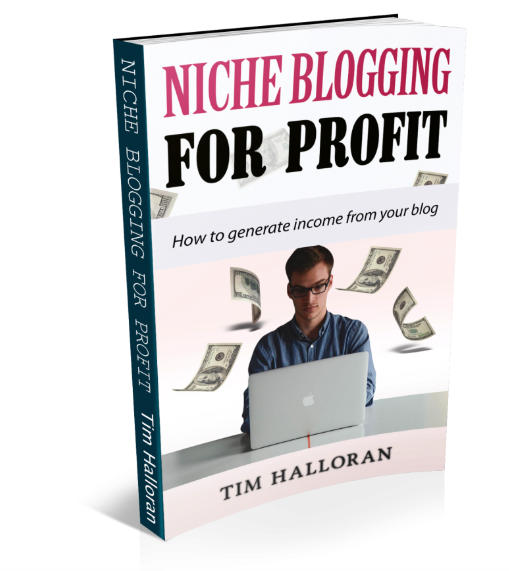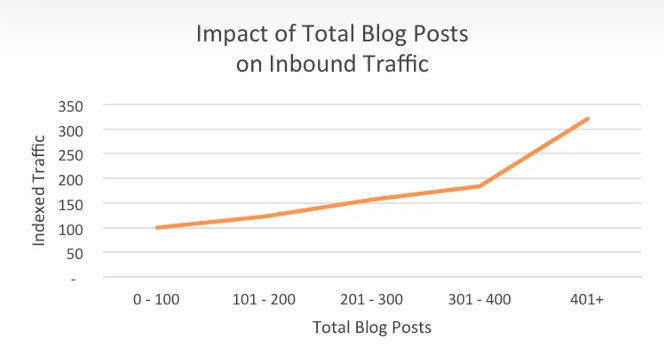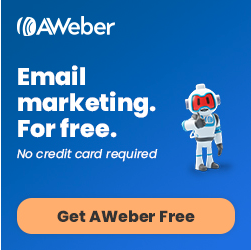Are you thinking about blogging for profit? There’s something quite magical about earning a profit by blogging. You can set your own schedule, write when and where you want, and be your own boss. The earning potential is unlimited too because a blog can reach people internationally and you can sell almost anything from a blog. But despite all the benefits of earning from a blog, there’s also a bunch of drawbacks too!
For starters it’s super competitive and bloggers need a large audience in order to make any money. To build an audience takes a lot of time and effort and many bloggers will quit, even after months (or years) of work! Depending on the topic you choose for blogging, there can be many thousands of other bloggers online competing with the same topic as you! With 600 million blogs in the world in 2022, it is safe to say that the world of blogging has become pretty saturated.
Blogging For Profit – Your “Niche”
It’s not all bad though! But if you’re just getting started with a blog, expect a long journey. Depending on your niche (topic), just getting traffic to your blog can take months of work. Then comes monetising your blog which is usually done in a couple of main ways; either through using adverts or affiliate products.

It’s a good idea to pick a topic for your blog. This is often referred to as a niche. A niche is a specific area of interest which you will cover in your blog. Since blogging for profit can take some serious time and effort, it’s a good idea to choose a niche in which you have an interest or passion. Blogging in an unfamiliar niche can take a lot more effort and is more difficult. You’ll need to research each post you write if you don’t know your topic. In the beginning it can be quite exciting writing blog posts. But after several weeks (or months) you can easily lose your enthusiasm!
This is particularly true if your topic is of no interest to you. So while you also need to think about monetising a blog, you also need to think of the longevity of your blogging habit. Choosing a topic you love, have a passion for or (at the very least) have an interest in is the best idea.
Blogging For Profit: Monetising Your Blog
Monetising your blog can be done even without your own products or service to sell. The two main ways you can monetise a blog simply are advertising or affiliate marketing. With advertising, you can join an advertising platform such as Google Adsense and place ads on your content. When visitors click on your ads, you earn a small percentage of the advertising revenue. Depending on your content, this is usually only a few pence/cents per click. In more competitive topics, you’ll earn a little more per click.

Because the amount is so low, you need a huge volume of traffic to make this strategy pay well. Another way to monetise a blog is through using affiliate marketing. With affiliate marketing you can promote other people’s products and services through your blog for a share of the profits.
If your topic is a very specific one, you can find affiliate products which are a good match for your choice of topic. When visitors find your content, you can present your affiliate products on your site. If someone buys a product through your affiliate link or banner, you receive a commission based on the sale. There’s many kinds of affiliate products from physical products to digital products and you can choose products in pretty much any area you could blog about.
Blogging For Profit: Traffic & Monetisation
Before setting off with a blog, it’s a good idea to get clear on what your blog will be about and how you’re going to monetise it. You can start a blog without monetising of course, but if your goal is to make profit from a blog, it’s good to lay the groundwork first.
Ideally find a topic to write about which you are passionate about and which you can monetise. While many people say choose a topic you love, you also need to choose a topic which you can monetise. Get these two right and you’re off to a good start.

I ran into problems a few years ago trying to blog about a topic I knew nothing about nor did I care about it: mushroom harvesting! I choose the topic with only financial gain in mind and thought (incorrectly) that just because I could get traffic (I did), then I would make money! Don’t make the same mistake. While traffic is one of the key ingredients to making money from a blog, it’s a mistake to assume traffic means profit! It doesn’t. You also need to drive the right traffic and link your audience to the right products (if you choose the affiliate marketing route).
Blogging For Profit: A Niche Website
With blogging, most of your traffic will be coming from the search algorithms (Google’s mostly). This means you’ll need to out-perform many other bloggers within your niche in order to get traffic. You can also share content on social media, build backlinks and build an email list which you can use for promoting your content (and affiliate products). But ideally, you’ll want search engine traffic because that’s how to get a lot of it!
To get your content found on the search engines, you need to blog consistently for some time. Depending on your niche, this can take several weeks, months or even years before you see a consistent flow of free traffic.

To give yourself a head start with traffic, you can build a niche website around specific keywords so as to rank more highly on Google for those keywords. If you do this right, it can give you a quick boost in traffic soon after your site is up and running.
Building A WordPress Website Around Your Keywords
To find keywords to build a niche website around you can use Google’s free keyword planner tool. This tool can give you ideas for keywords with which to build a site. Ideally you want to find a keyword phrase which fits your topic and which you have a good chance of ranking your site for. You can determine this with some experimentation and by looking on Google for your keywords. See also how to create a niche website for affiliate marketing.

This website has been built around the keywords “affiliate marketing mentors“, for example. As you can see in the above picture, this search term gets a small amount of monthly views and was relatively uncompetitive on Google when I built the site. So it was a good keyword to build the site around.
To learn more about building a keyword targeted website, setting up hosting and purchasing a domain name checkout this article.
This idea can give you a nice boost in traffic in the beginning. However, you can build a site without doing this and focus on blogging alone for your traffic.
Useful Plugins For A WordPress Website
It’s a good idea to get yourself an SEO plugin which will help you write SEO friendly blog posts. SEO, or search engine optimisation is what you need to get good at as a blogger. Yoast SEO is a great free plugin which takes all the hard work out of it for you.
Other plugins can also help you speed up your site, help visitors share your content and link your content automatically to social media sites. All of this helps your SEO over time and gets eyes on your blog posts:
- Social Media share buttons
- Auto post to social media
- Speed up your site (good for SEO)
Checkout other WordPress blog plugins which will help you here.
Blogging & Email Marketing
One of the best ways to monetise a blog is through selling affiliate products from your site. Of course the first issue is to get traffic to your content. But this is an ongoing task which you’ll need to make a habit out of. Once you start seeing traffic, you’ll want to make the most of it and monetise it as quickly as possible. One of the best ways to do this is with an email marketing list. An email list can be built from your blog by offering a freebie giveaway on your site in exchange for your visitor’s email.

Once on your email list, you have much better chance of building a relationship with your subscribers by offering valuable information in your email messages. An email list can connect you back to your blog visitors many times. While on a blog, it can be difficult to get a first time visitor to make a purchase. Visitors tend to want many touch points before making a purchase, which is where an email list comes in.
An email list can compound your blogging efforts much more quickly because you’re able to collect emails and maintain a relationship with your subscribers over the long term. Whereas on a blog, your visitors only stick around for a few minutes before they are gone forever! See also free autoresponder for affiliate marketing.